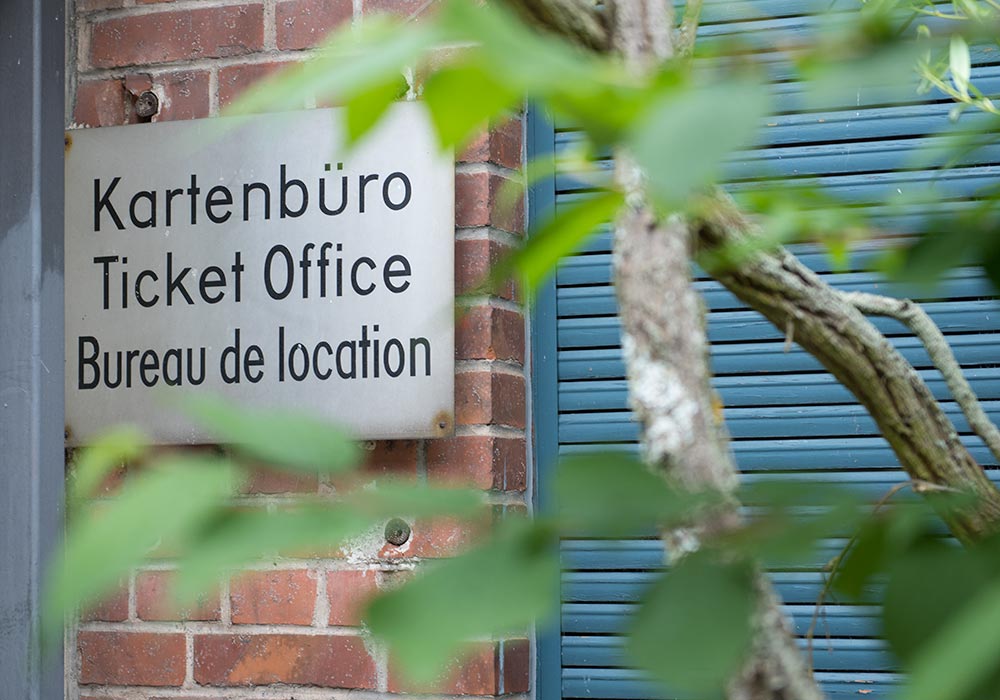Bayreuth town
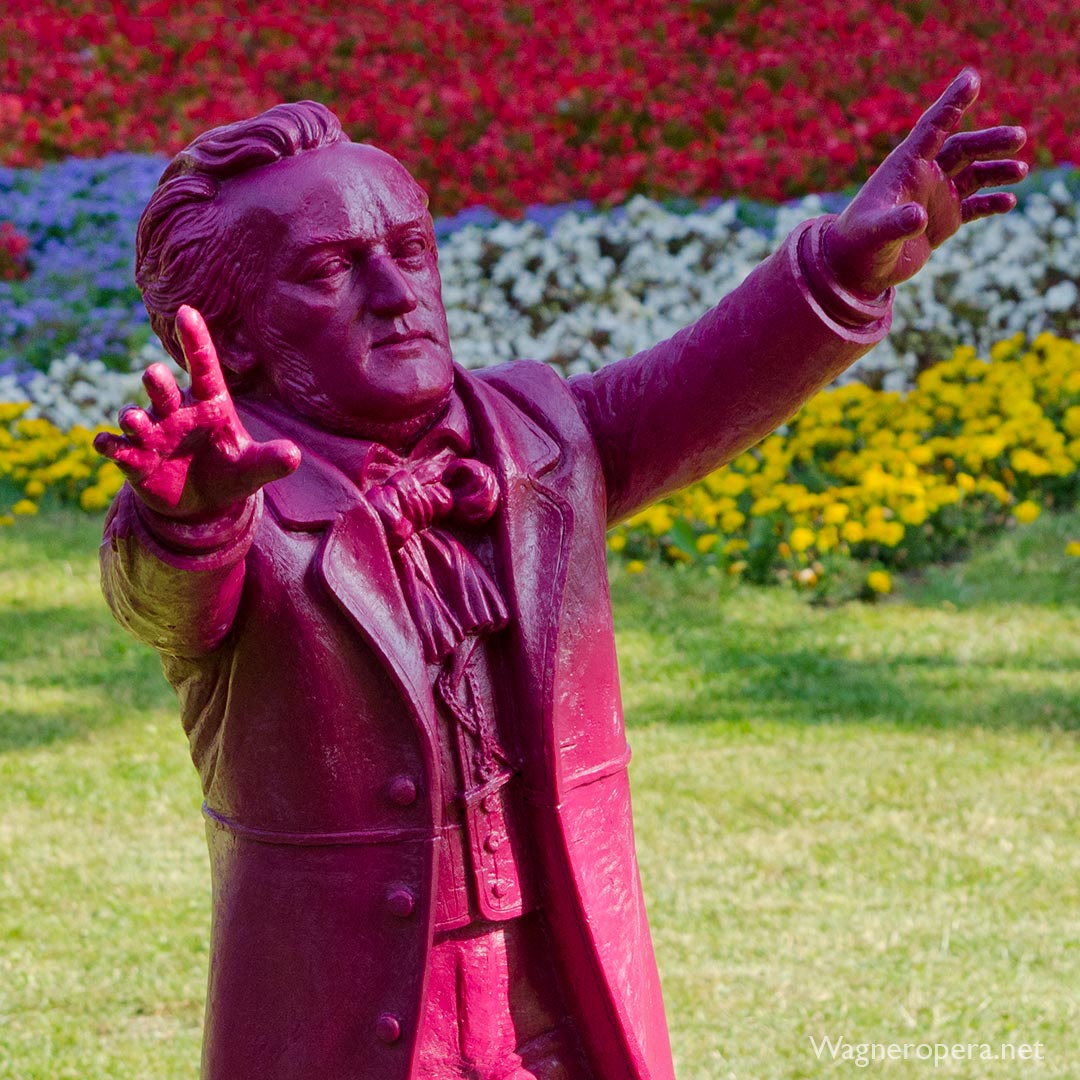
Bayreuth town and surroundings
Bayreuth, a charming town located in the heart of Germany, has gained worldwide recognition primarily for its renowned annual Richard Wagner Festival held at the magnificent Festspielhaus. While the city strives to showcase its diverse attributes, such as the esteemed University, it is undeniable that Villa Wahnfried and the Festspielhaus have played a significant role in shaping Bayreuth's appeal to international visitors. However, beyond these iconic landmarks, there are several other captivating destinations worth exploring, including the Margrave's Opera House, hailed as one of Europe's finest examples of Baroque theaters, as well as the picturesque Eremitage Park and Old Castle.
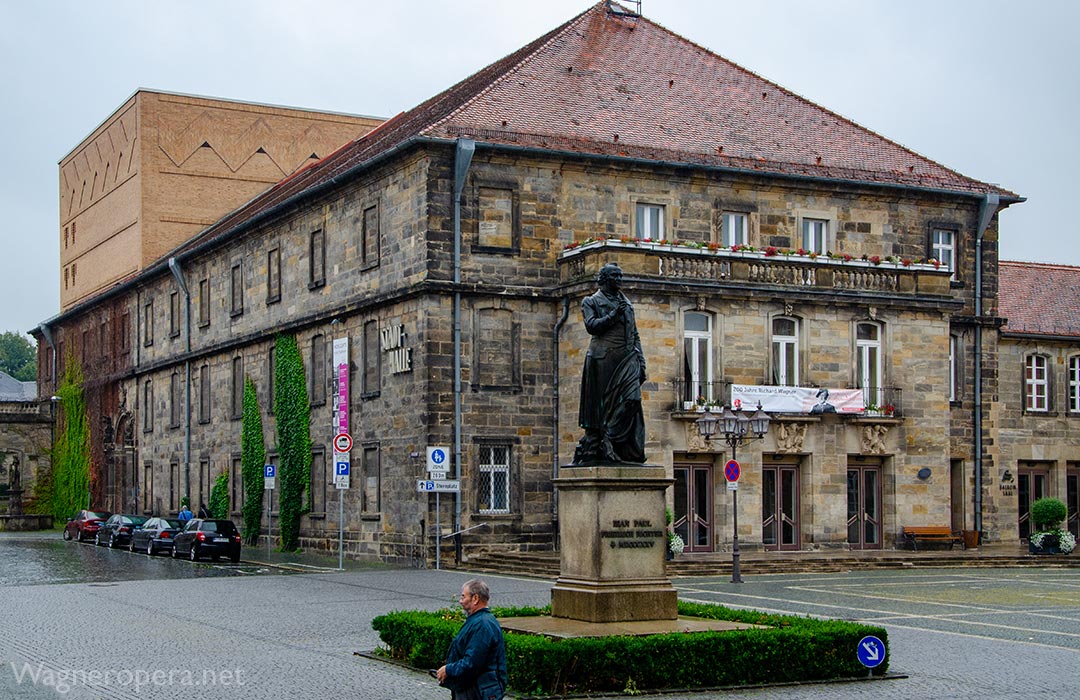
Stadthalle Bayreuth: Friedrich III, Margrave of the Principality of Bayreuth and husband of Wilhelmine of Prussia, had the building constructed in the years 1747/48. The town hall has been the venue for numerous congresses as well as theater, drama, music, and other events.
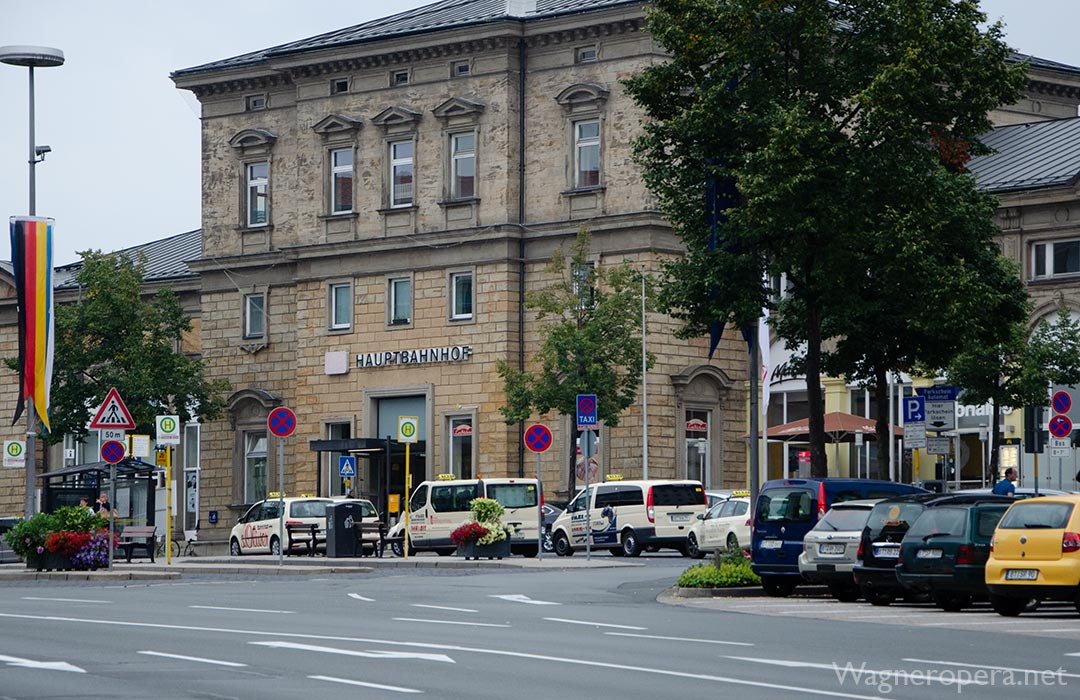
Hauptbahnhof: For many visitors, the Bayreuth Central Station serves as their initial introduction to the city of Bayreuth.
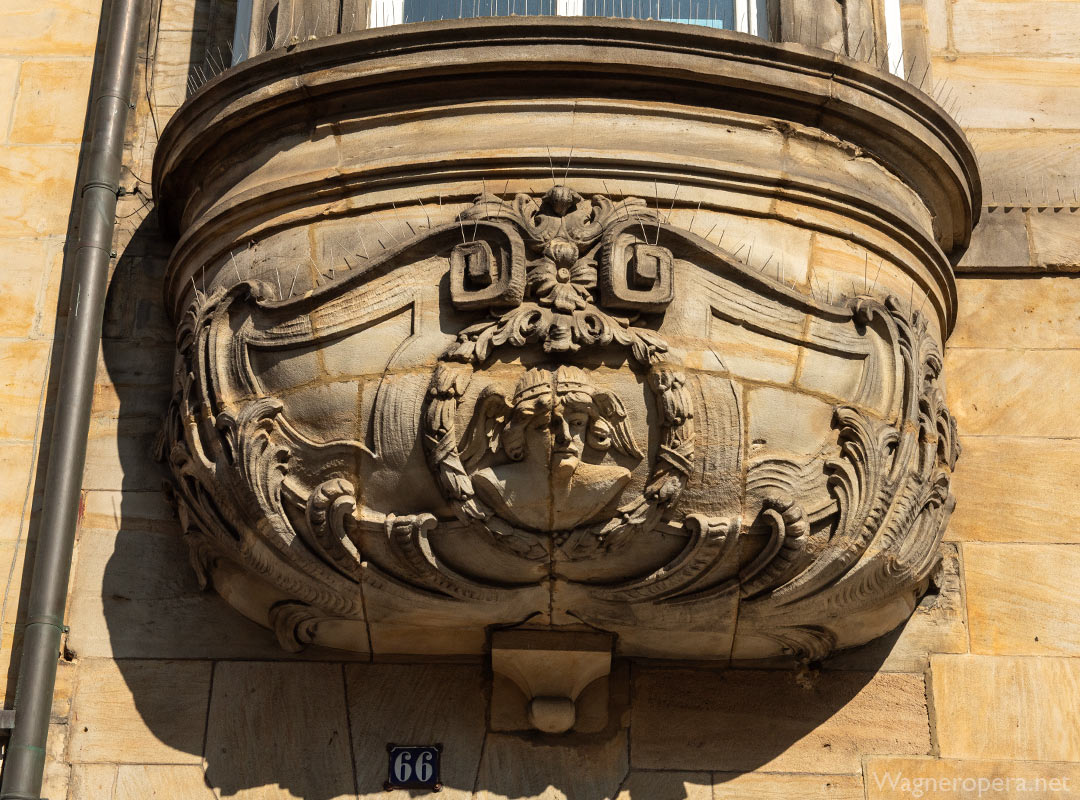

A former post office building in Kanzleistrasse, Bayreuth.
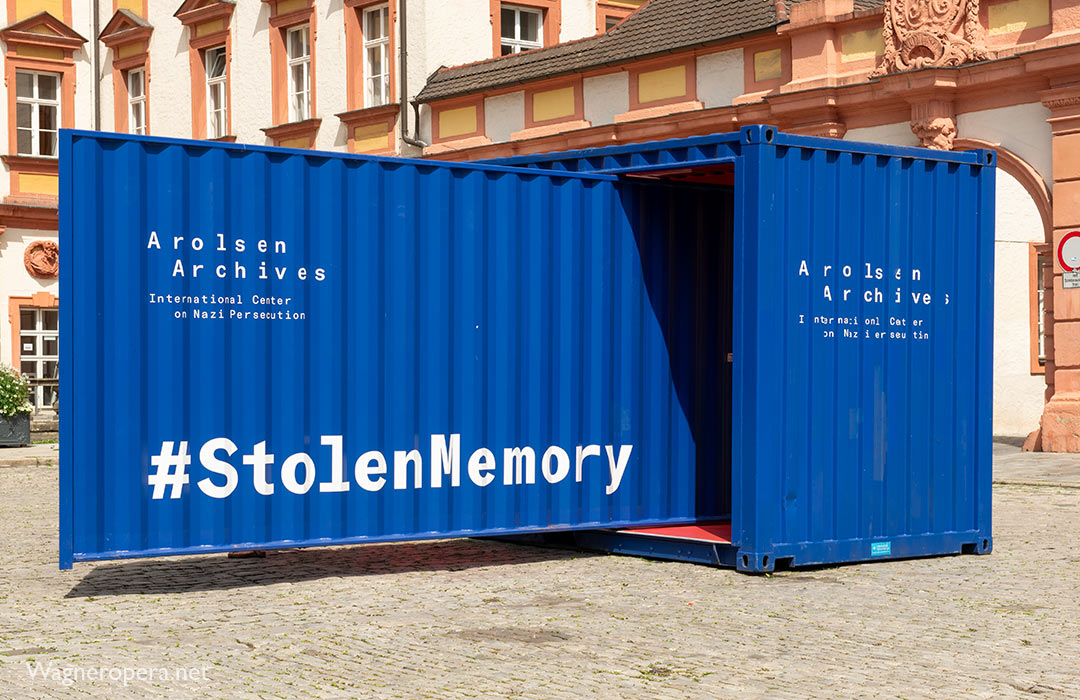
An exhibition by Arolsen Archives - International Center on Nazi Persecutions.
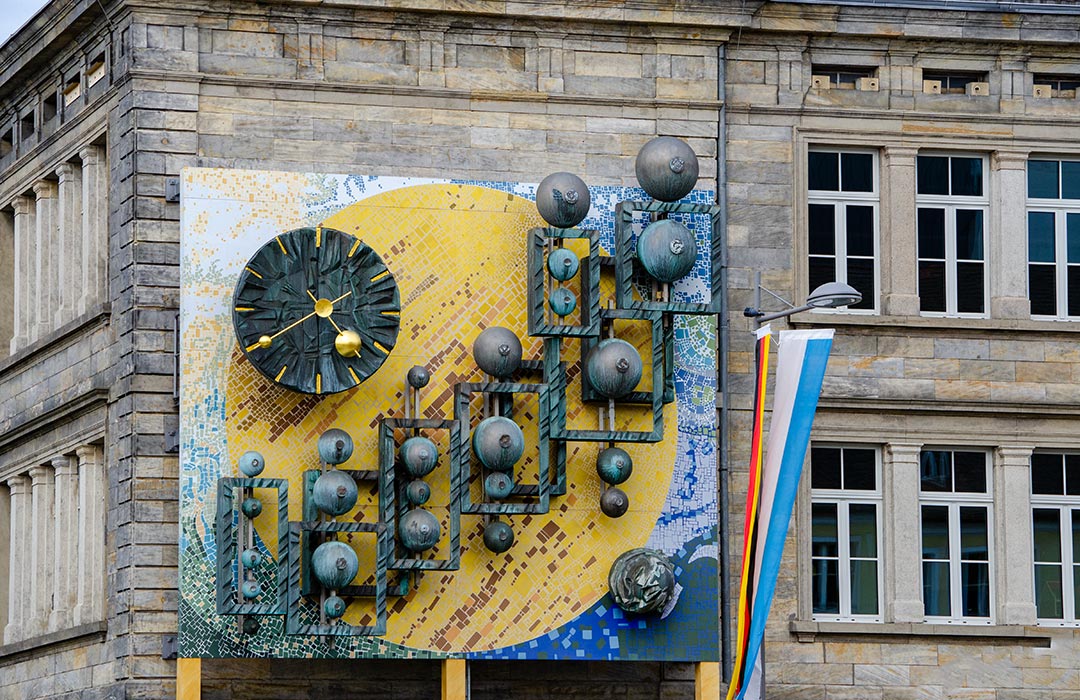
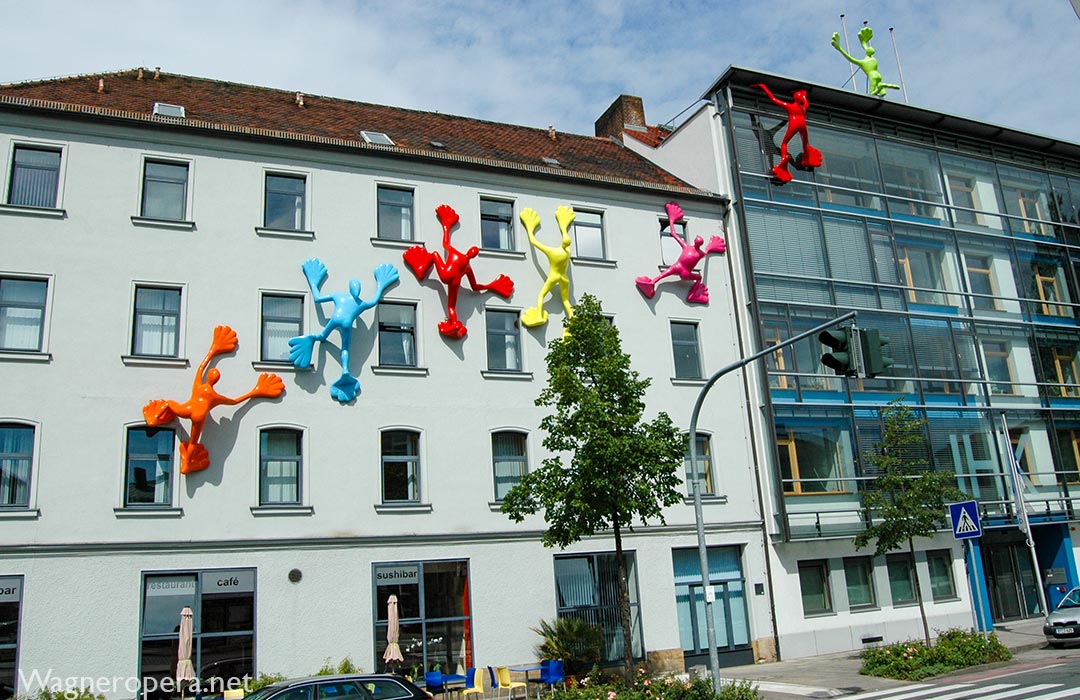
Installation by Rosalie.
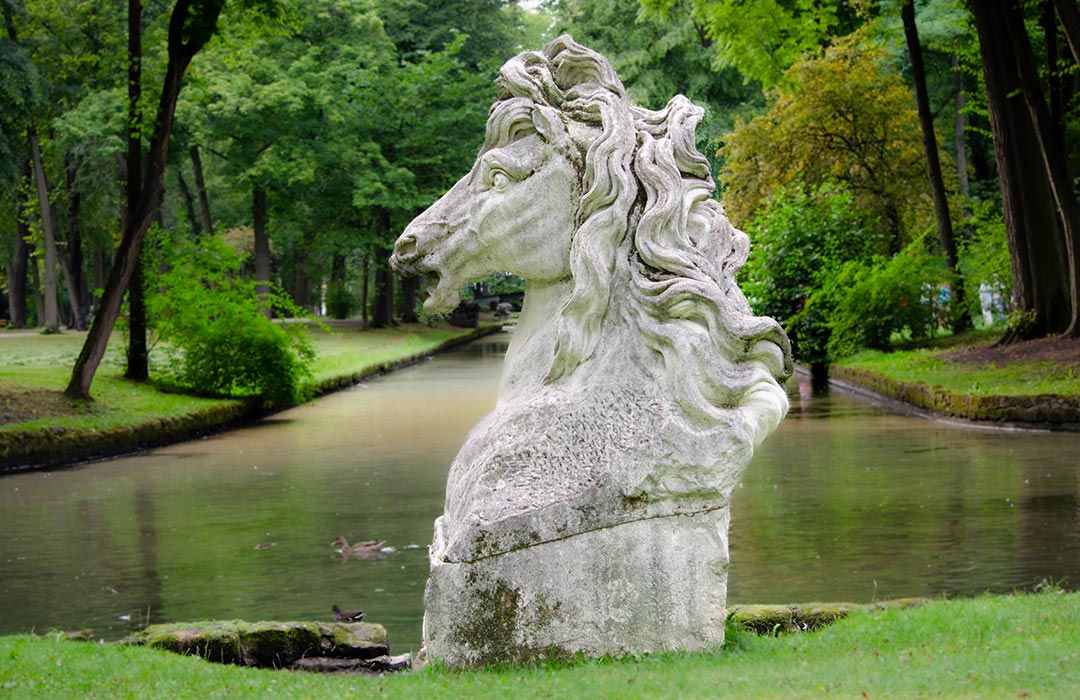
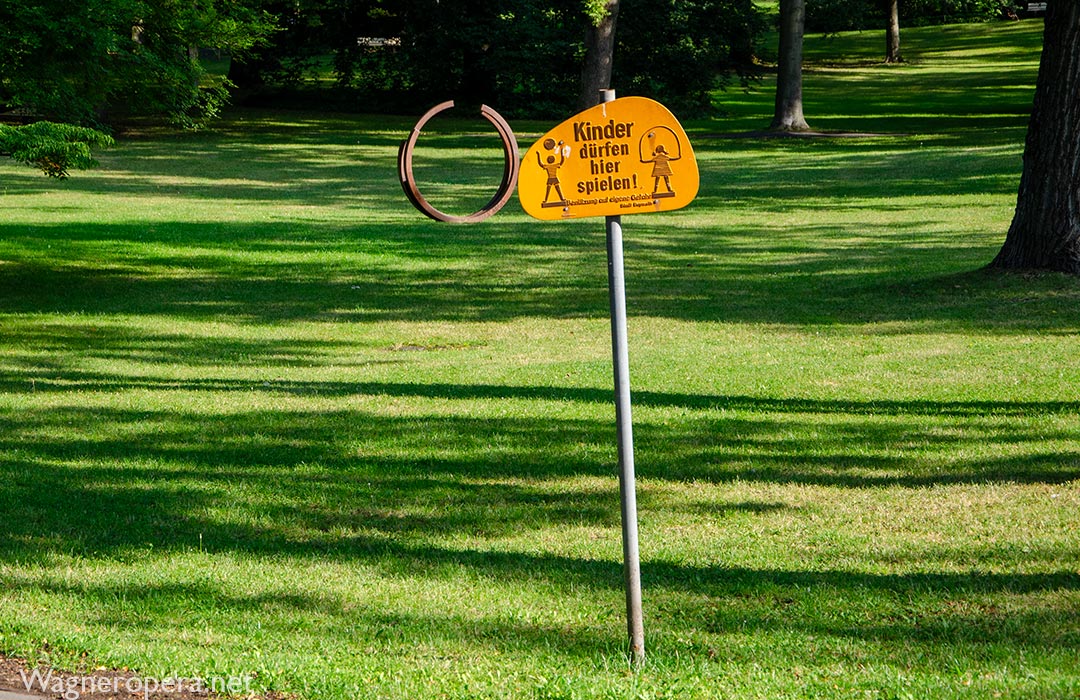
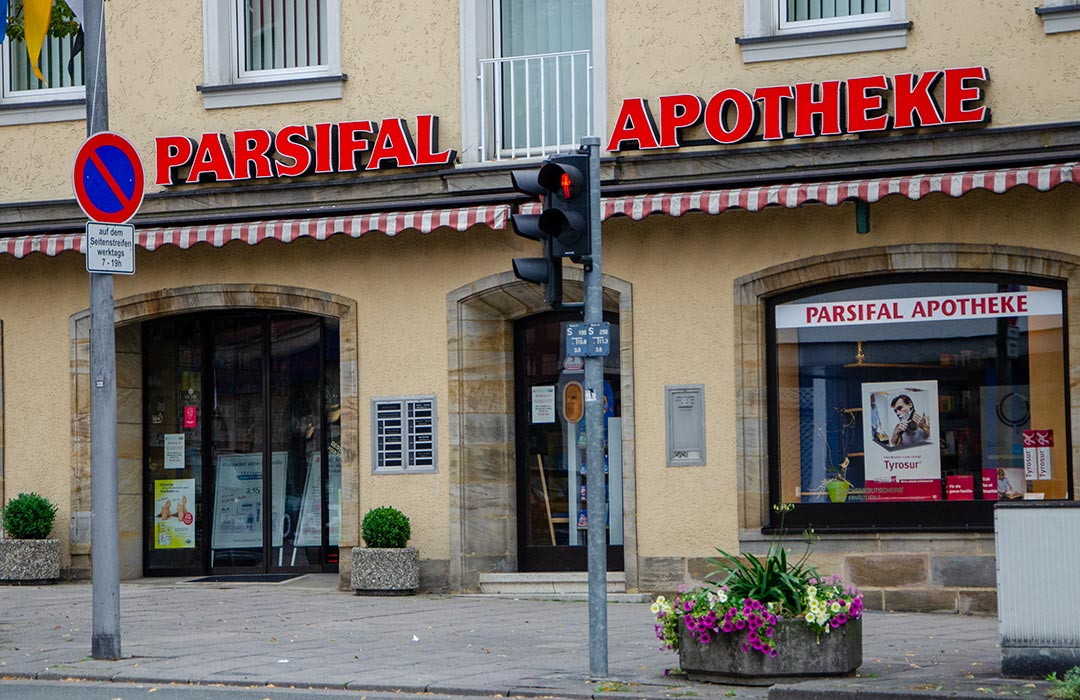
Parsifal Apotheke: Shops, pharmacies, restaurants and whatnot have been named after Wagner's operas or characters.
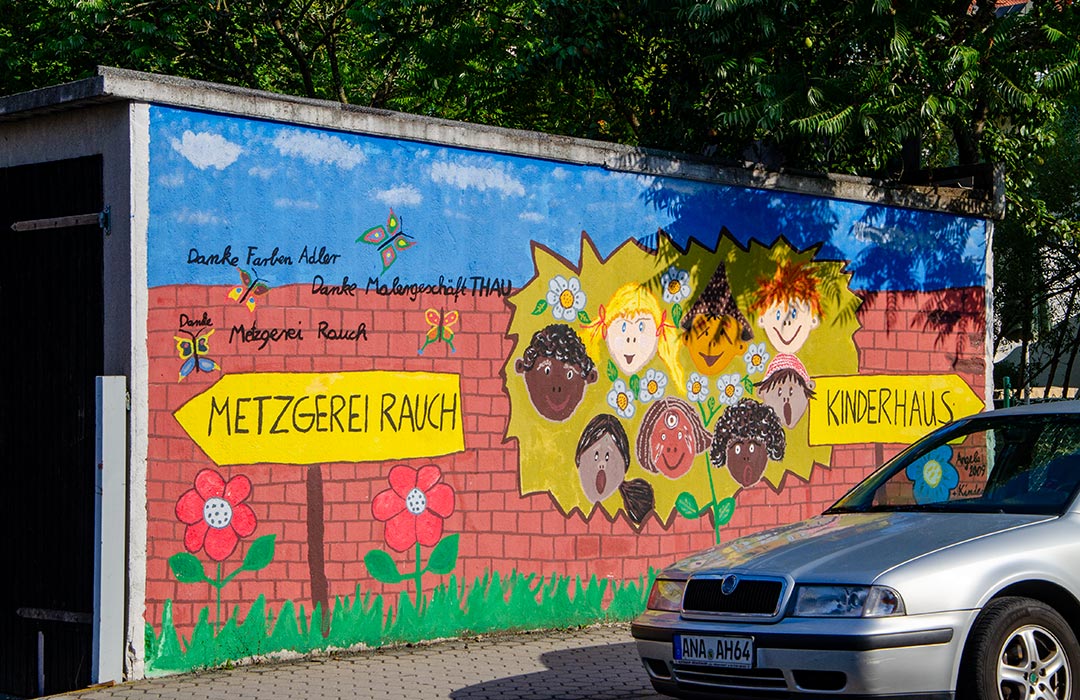
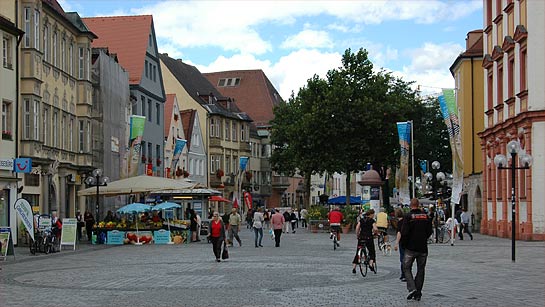
Maximilianstrasse.
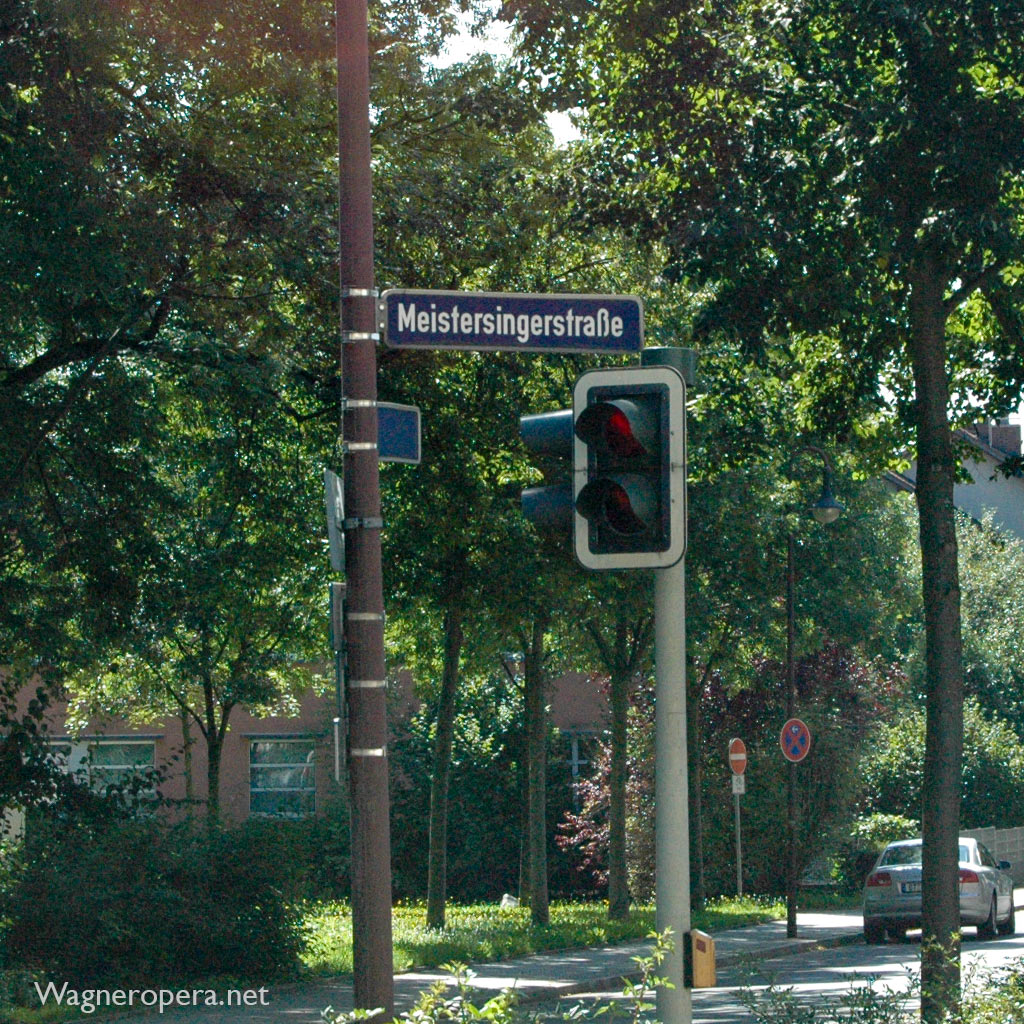
Meistersingerstrasse.
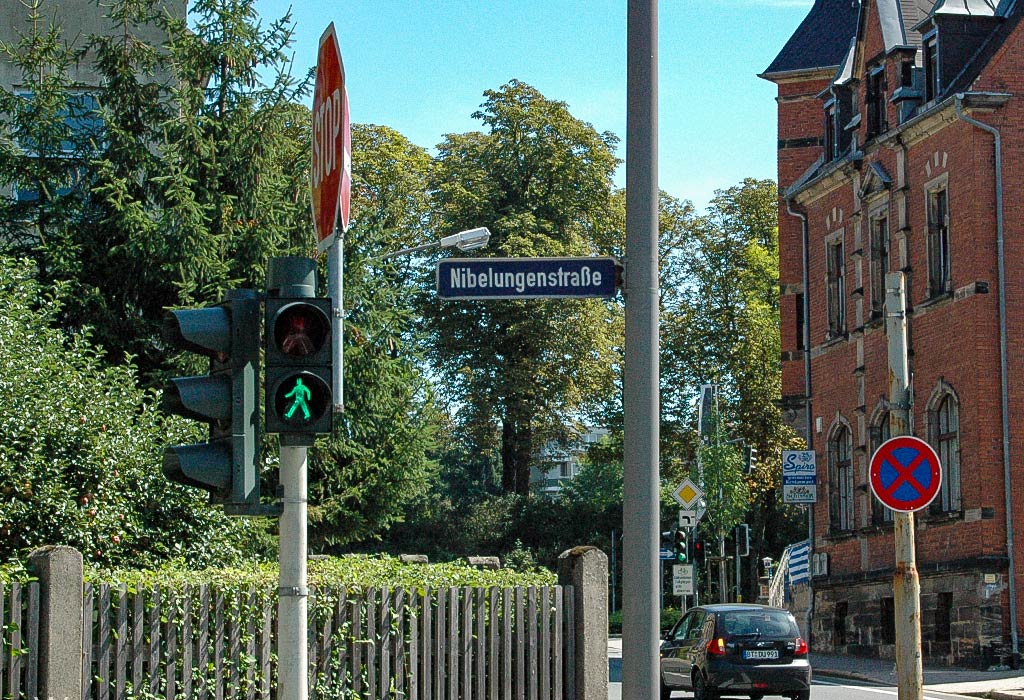
Nibelungenstrasse.
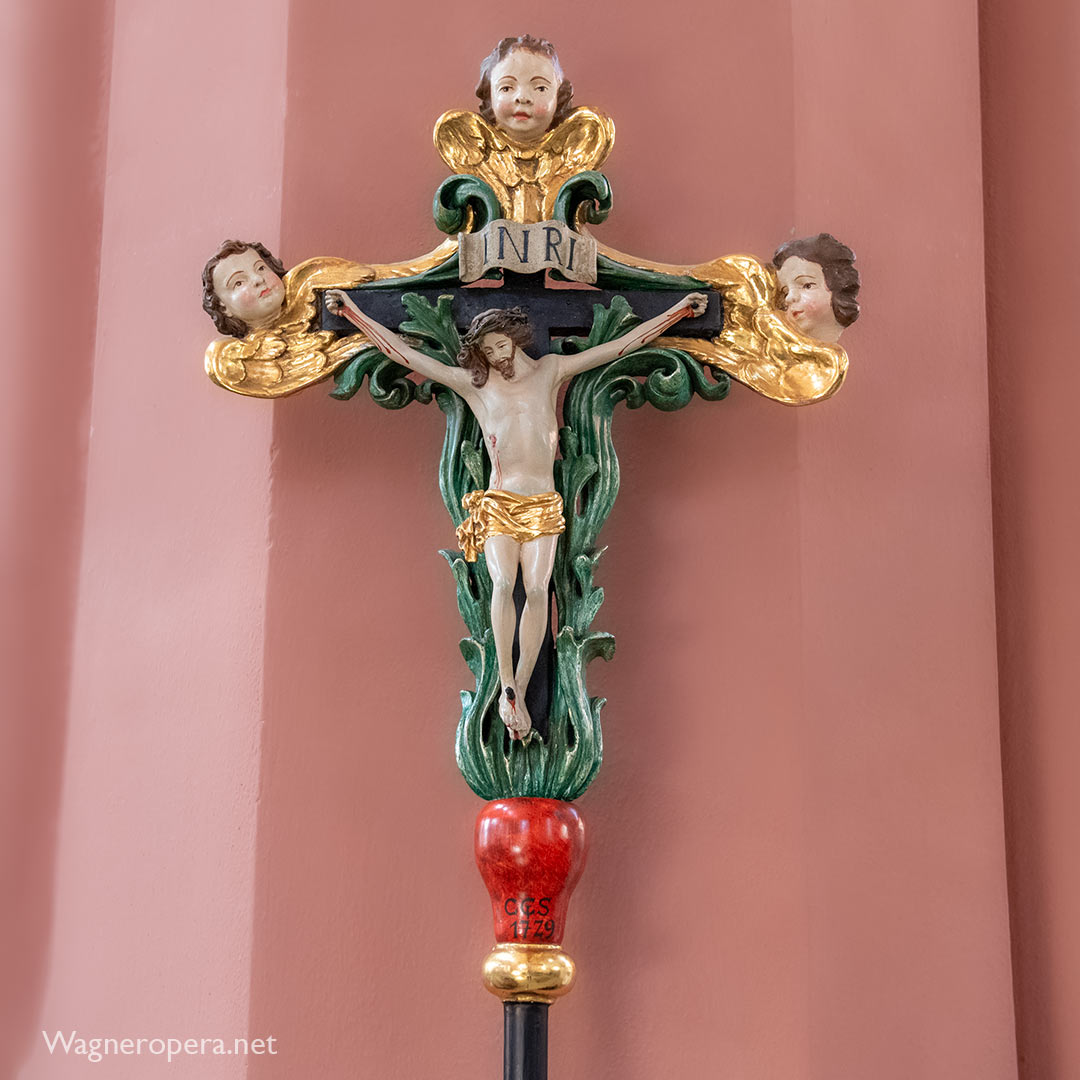
Processional crucifix from 1729 in the Stadtkirche.
Margrave's Opera House (Markgräfliches Opernhaus)
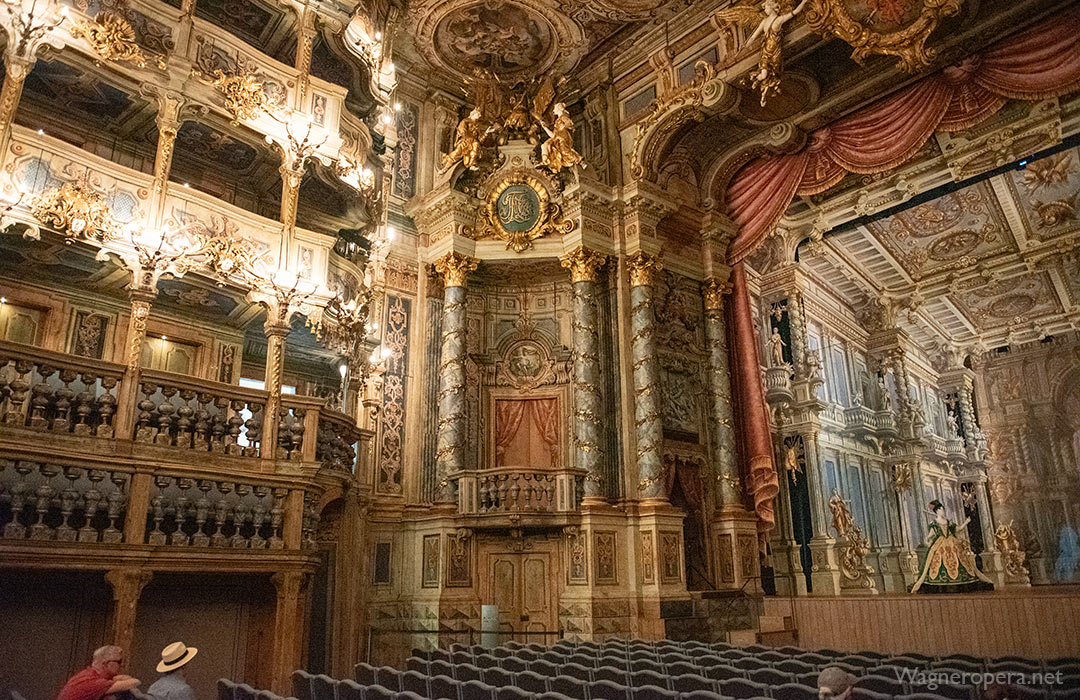
Margravine Wilhelmine of Brandenburg-Bayreuth (1709–1758) was deeply passionate about music and theater. The Margravial Opera House was constructed to celebrate the lavish wedding of her daughter, Bayreuth princess Elisabeth Friedericke Sophie, and Duke Carl Eugen of Würtemberg in September 1748.
The opera house's design was entrusted to Giuseppe Galli Bibiena, a leading theater architect of the time who had been serving the Viennese Imperial court. His son, Carlo Galli Bibiena, oversaw the Bayreuth project and continued working at the court until the margravine's death, contributing numerous stage designs and festival decorations.
The opera house is inspired by Italian lodge theaters of that era. Its fully preserved lodge tiers, made primarily of wood and canvas, are installed as a free-standing structure within the stone exterior.
The theater’s interior was completed in record time, with some wooden architectural elements and sculptures prefabricated and painted elsewhere. In just under four years, from 1744 to 1748, this masterpiece of ephemeral festival architecture was realized.
During the restoration from 2013 to 2018, the original light and airy atmosphere of the auditorium’s illusionistic painting, with its striking three-dimensional effect, was carefully restored.
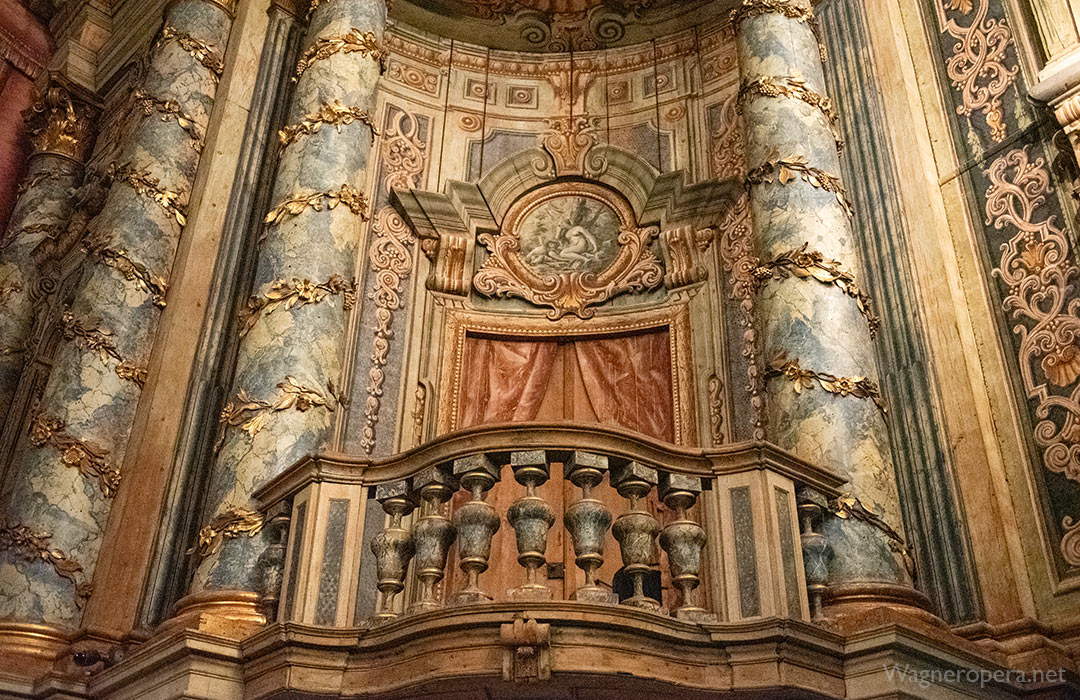
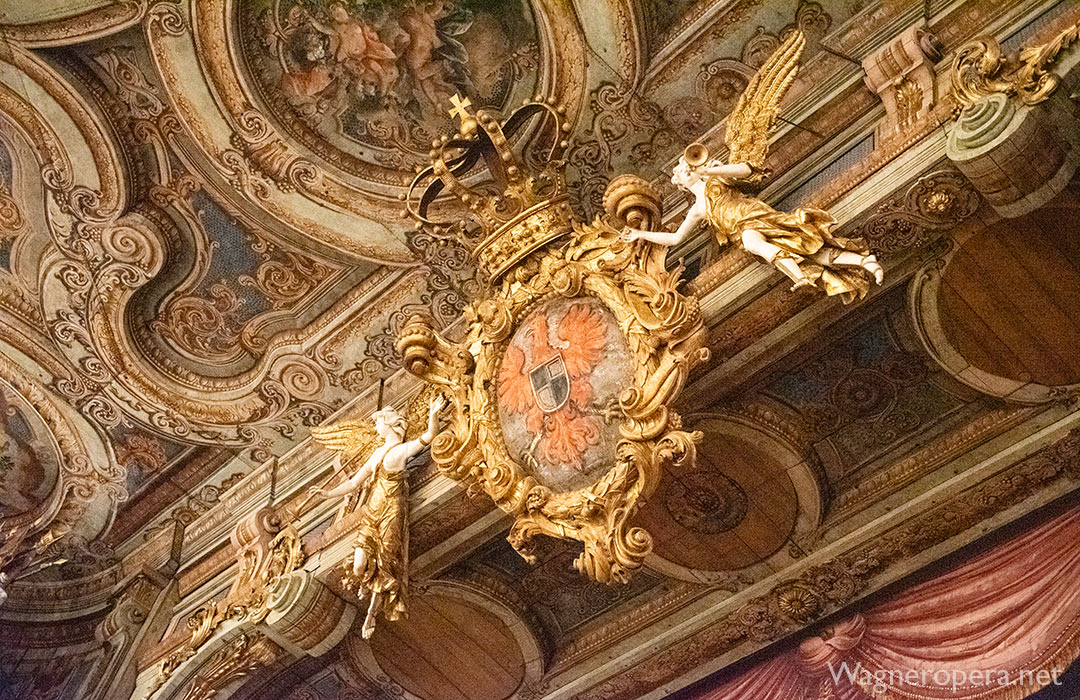
In September 2020 the International Festival of Opera Seria Bayreuth Baroque debuted in the Margravial Opera House Bayreuth. The theatre of Wilhelmine of Bayreuth, which opened in 1748, was added to the list of UNESCO World Heritage sites in 2012. The performance of baroque opera serias at the original location awakens one of the most beautiful opera houses in the world from a museum sleep and allows you to experience its epoch in a sensual way. Bayreuth Baroque takes place in September.
Eremitage
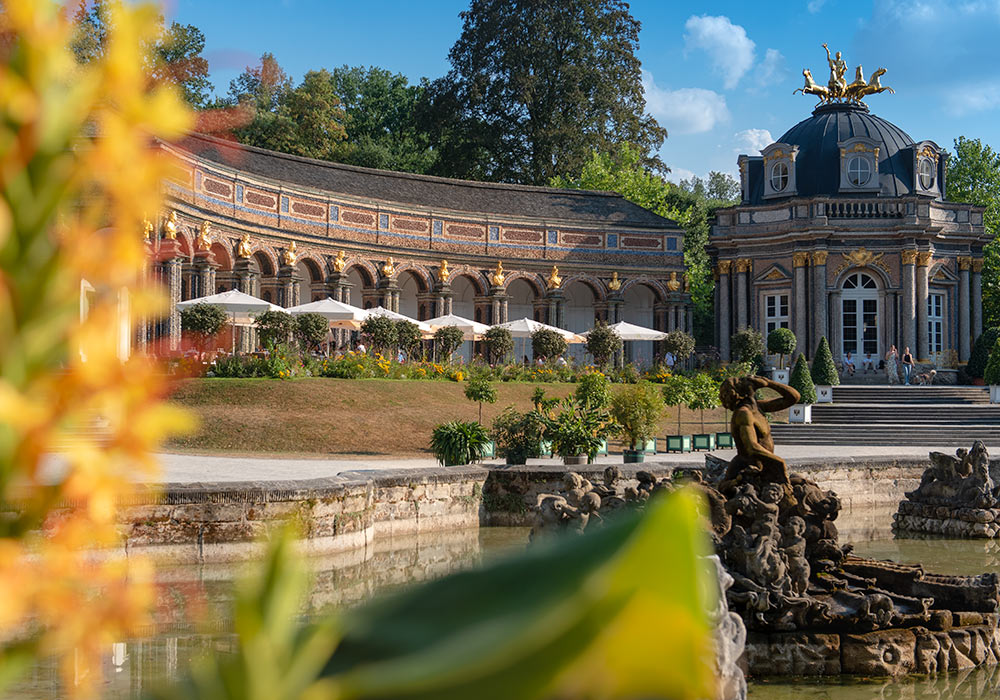
The lovely Eremitage.
Villa Wahnfried - Haus Wahnfried
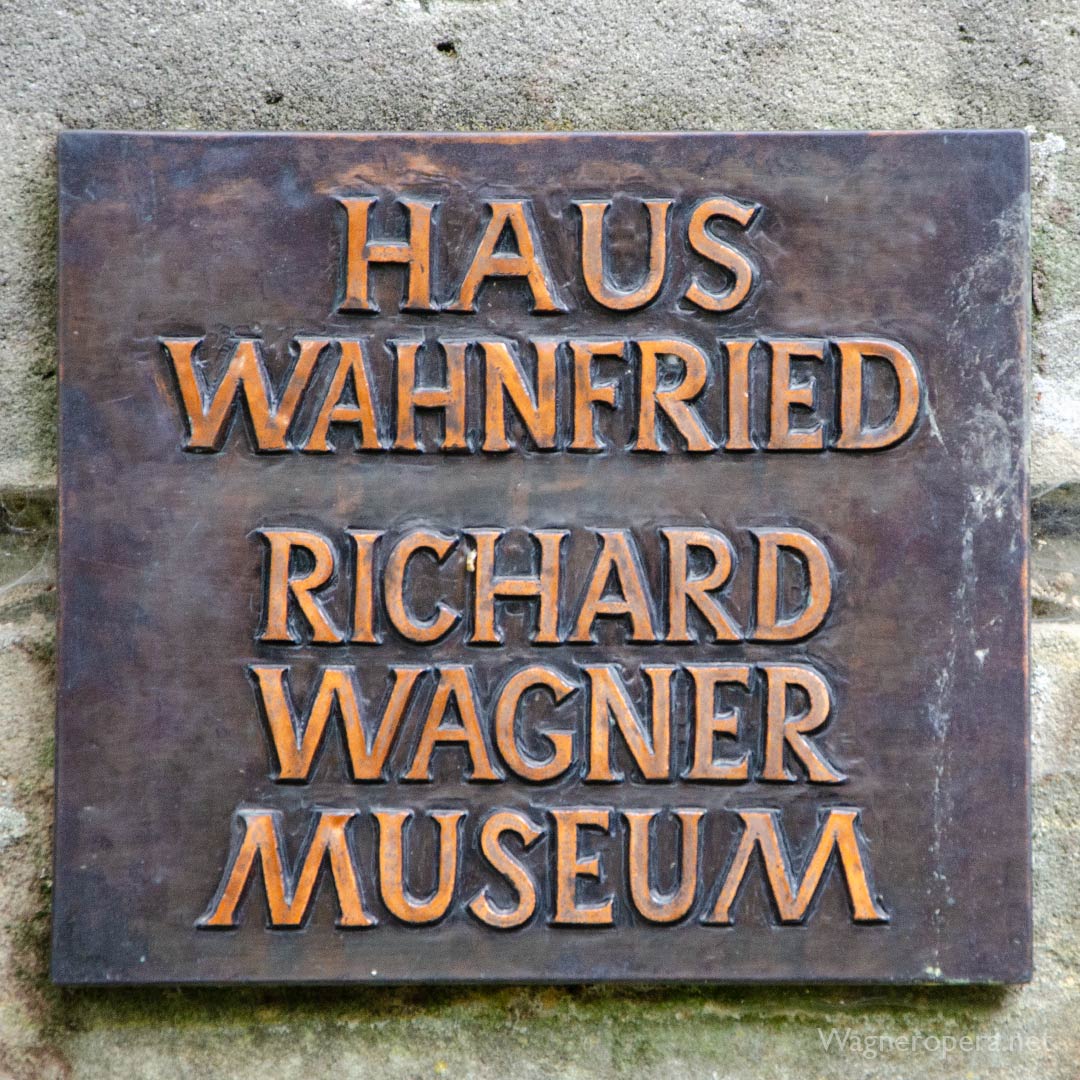
Haus Wahnfried - Richard Wagner Museum.
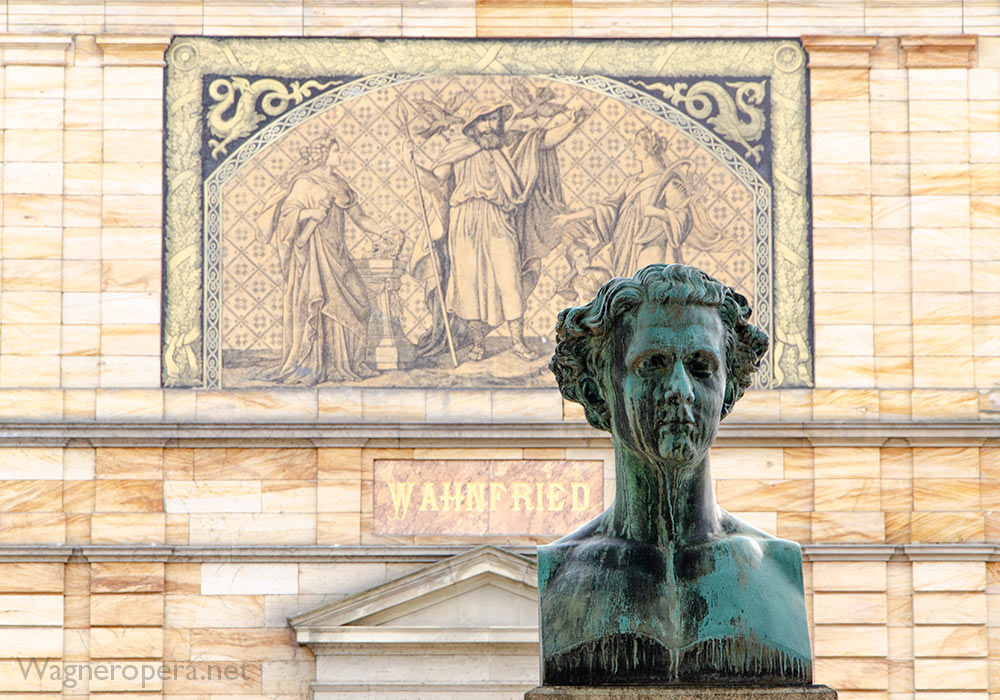
King Ludwig II in front of Villa Wahnfried, where Richard Wagner lived from 1874.
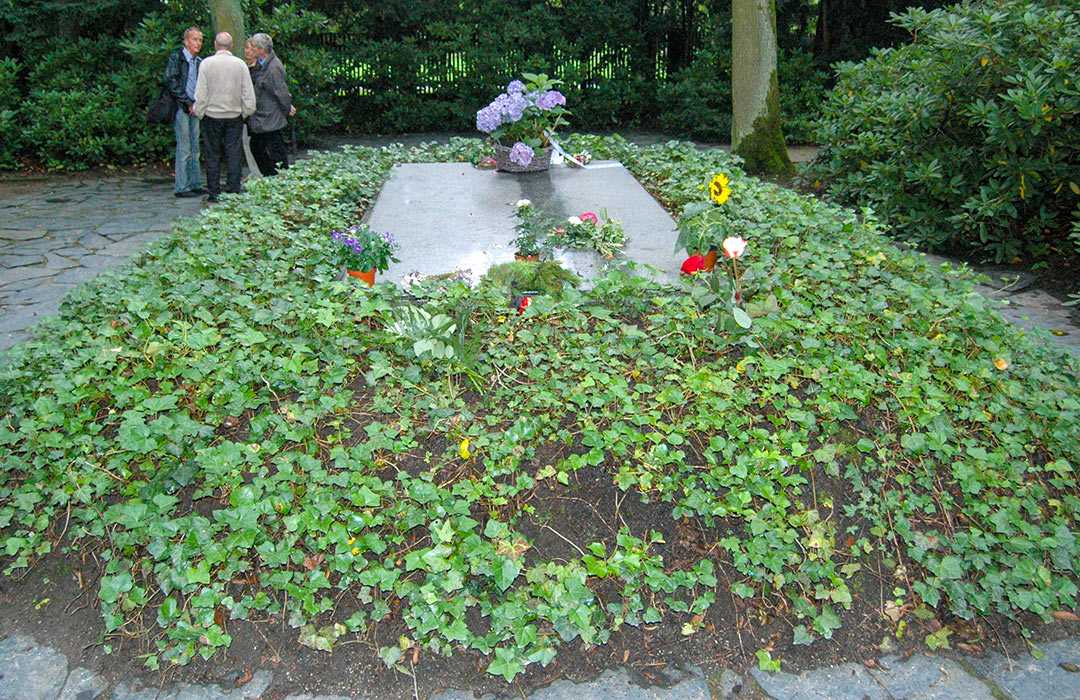
Richard Wagner's grave at Villa Wahnfried in Bayreuth is visited by thousands of people every year.
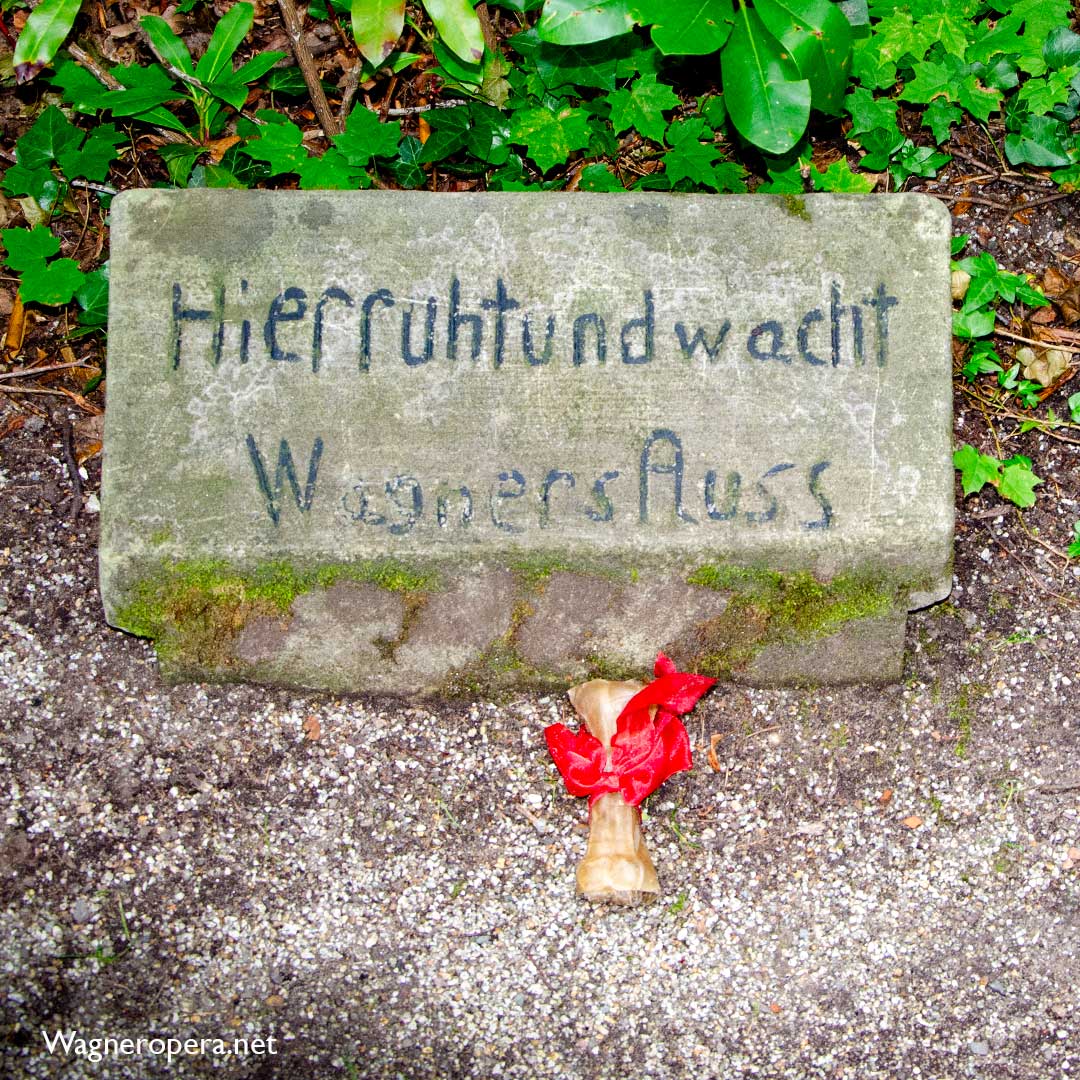
“Hier ruht und wacht Wagners Russ.” Within the Wahnfried garden stands a memorial dedicated to Wagner's loyal canine companion, Russ. This tribute honors the beloved dog, symbolizing the deep bond between Wagner and his faithful friend.
Hotels in Bayreuth
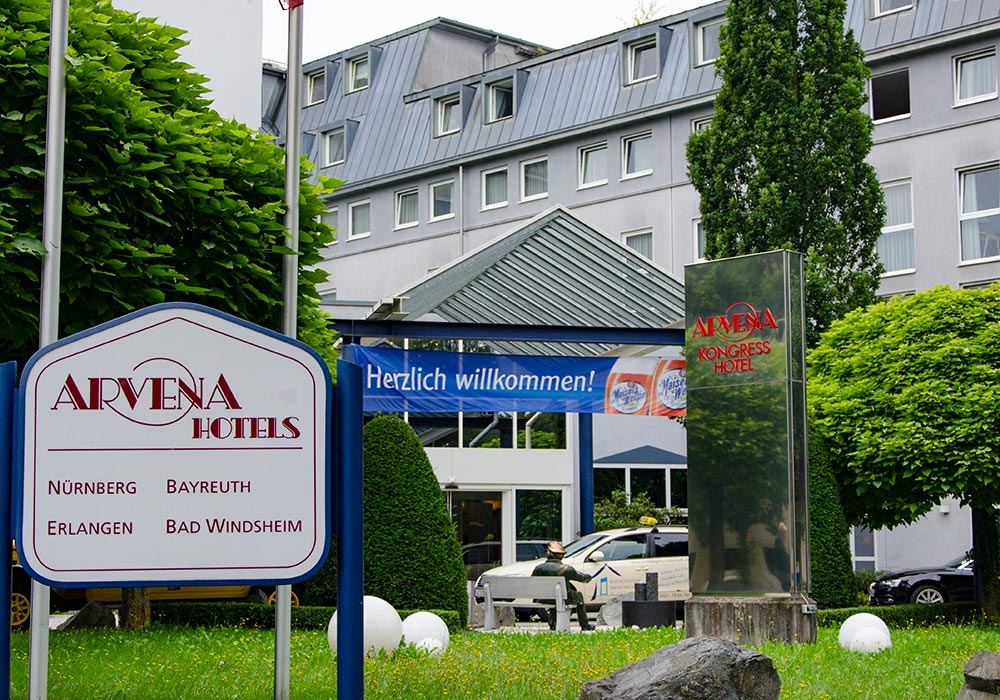
The most popular hotel in Bayreuth for Festival visitors is probably the Arvena Kongress Hotel, 1.5 km from the Festspielhaus.
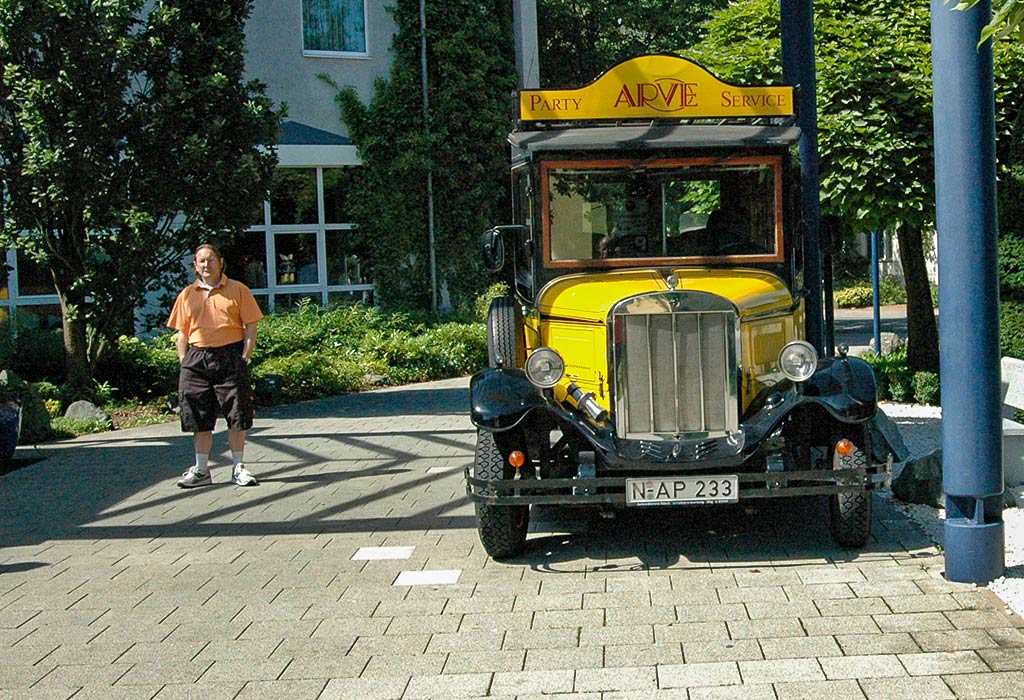
The congress hotel Arvena Kongress Hotel has its own veteran bus that is shuttling between the hotel and the Festival House before performances.
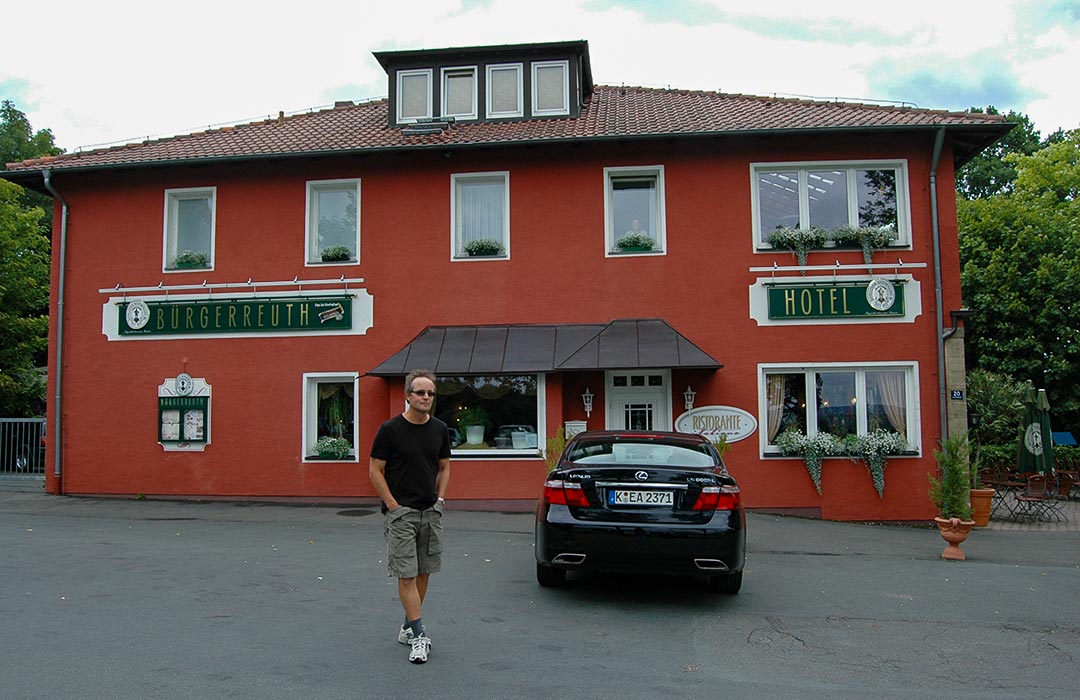
The Bürgerreuth Hotel is located just a few hundred meters above the Festspielhaus, offering convenient access to the venue. The hotel also boasts a highly-regarded Italian restaurant, making it a great dining option. After performances, you might even spot some of the singers enjoying a meal.
The Bayreuth Festival
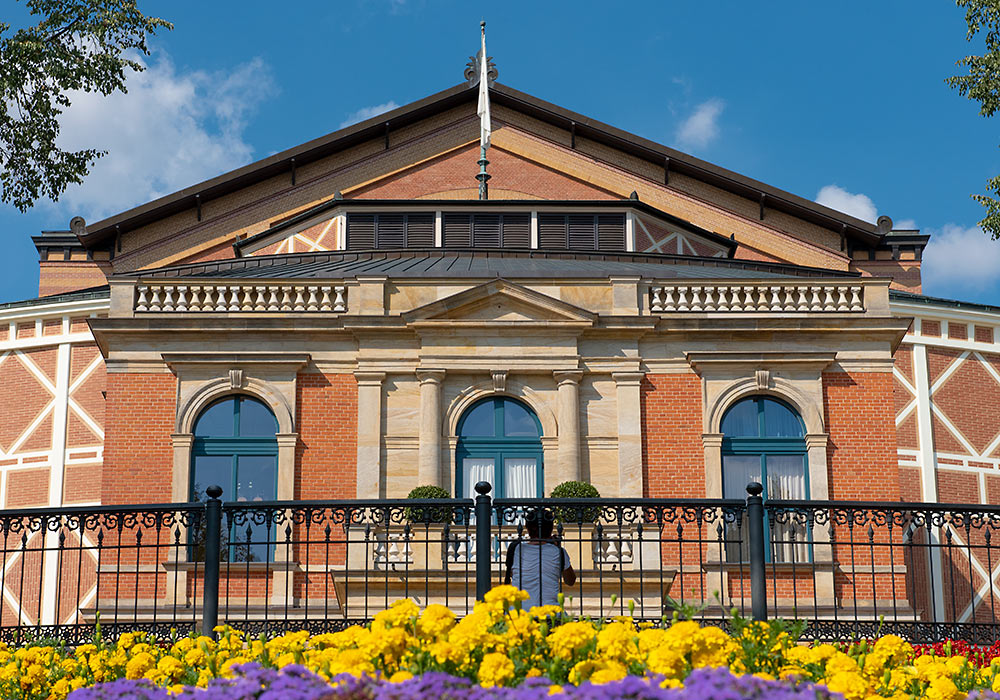
The Festspielhaus in Bayreuth.
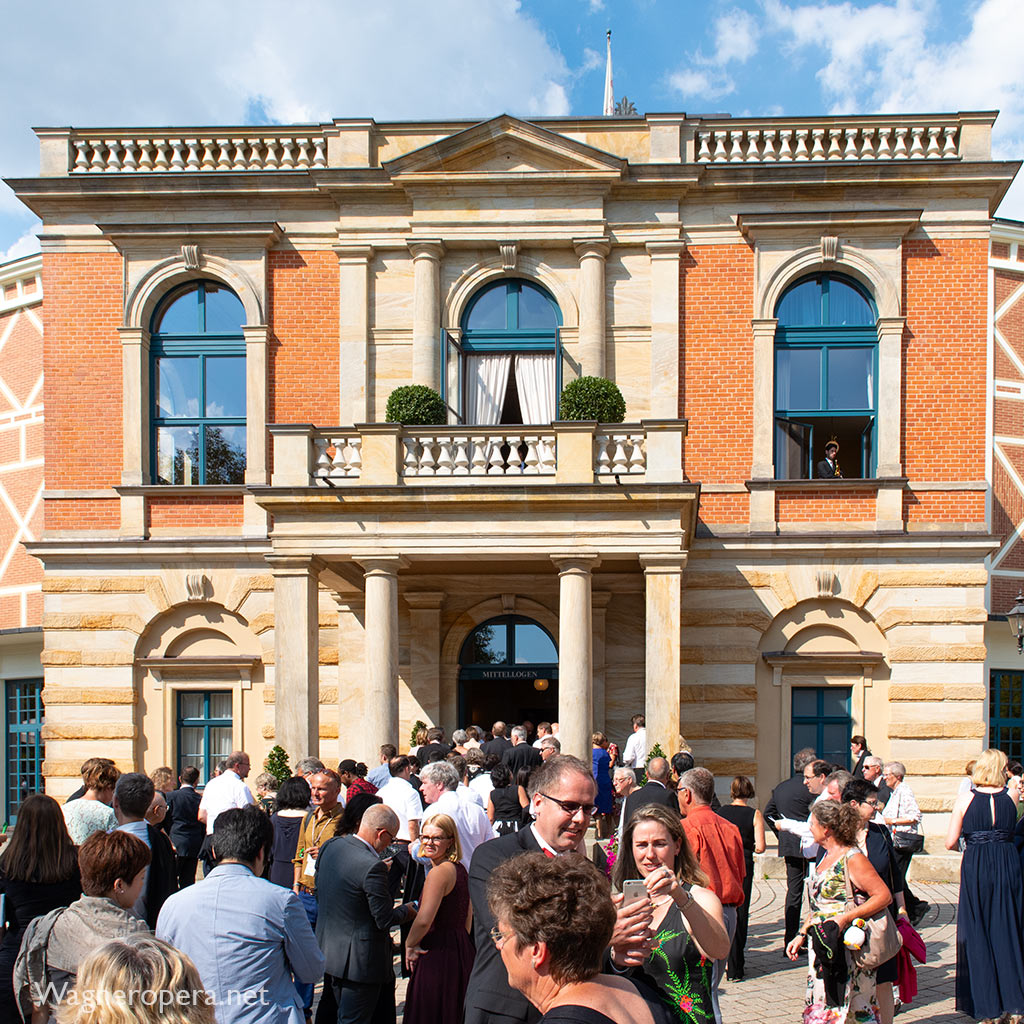
People waiting for the signal to enter the Bayreuth Festival Hall.
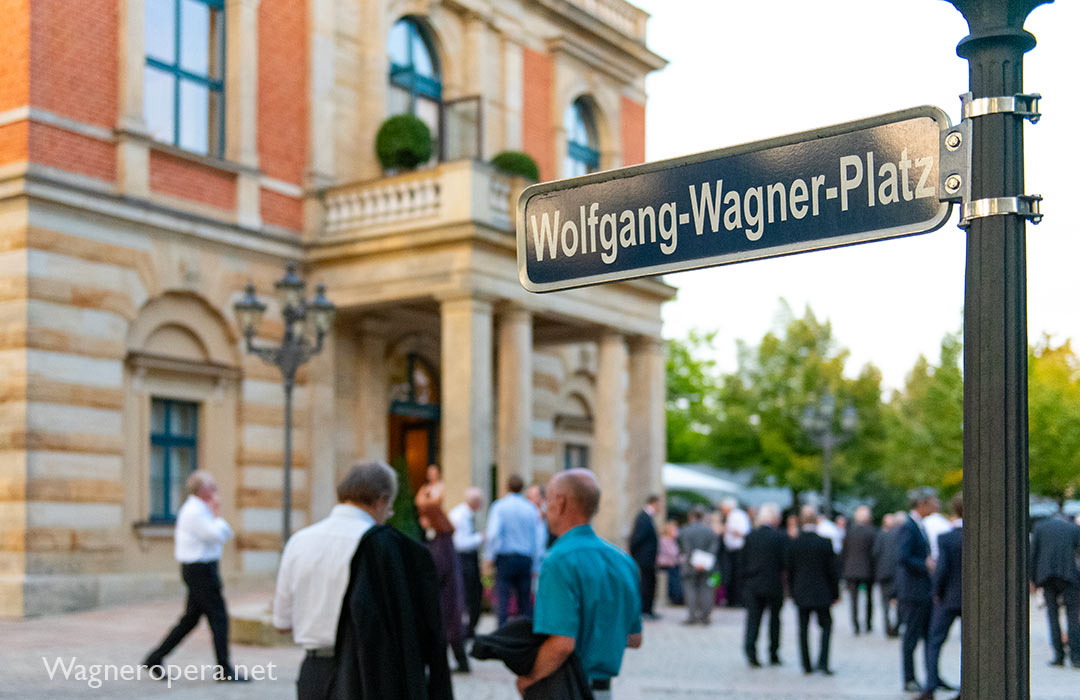
Wolfgang-Wagner-Platz.
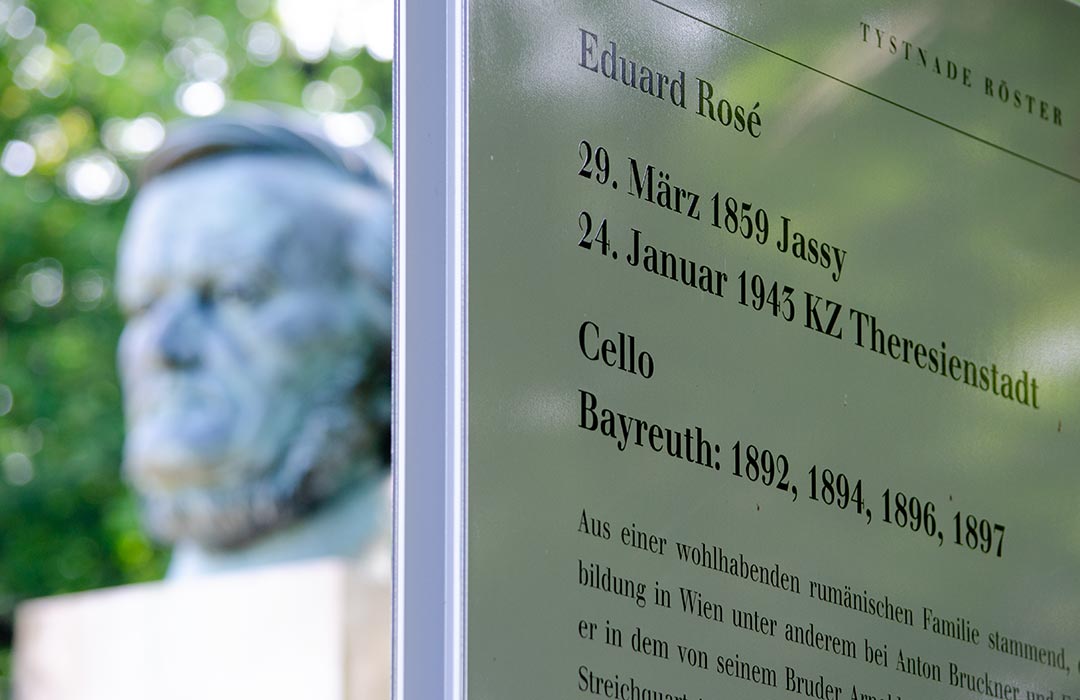
Silenced Voices: As part of the 2012 and 2013 Festivals in Bayreuth, a thought-provoking exhibition titled "Silenced Voices: The Bayreuther Festspiele and the Jews from 1876 to 1945" delves into a dark chapter of German history. The exhibition confronts the exploitation of the music festival by the Nazis as a platform for disseminating anti-Semitic propaganda, and presents the latest findings on this subject matter.
Eduard Rosé, a cellist and member of the Bayreuth Festival Orchestra during the years 1892, 1894, 1896, and 1897, tragically met his untimely fate in the harrowing confines of the Theresienstadt concentration camp. The panel dedicated to his memory serves as a reminder of the profound loss suffered, as he passed away on 14 January, 1943.
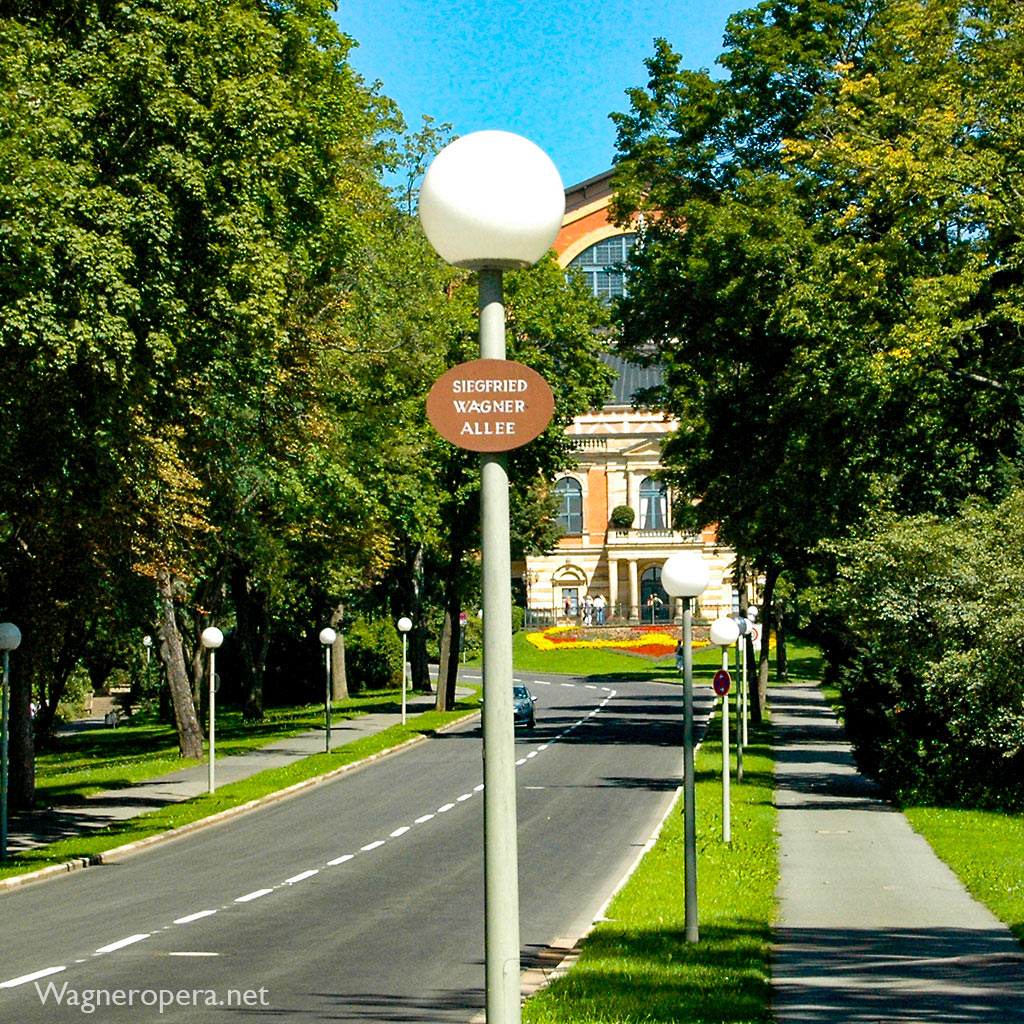
Siegfried Wagner Allee, leading up to the magnificent Festspielhaus.
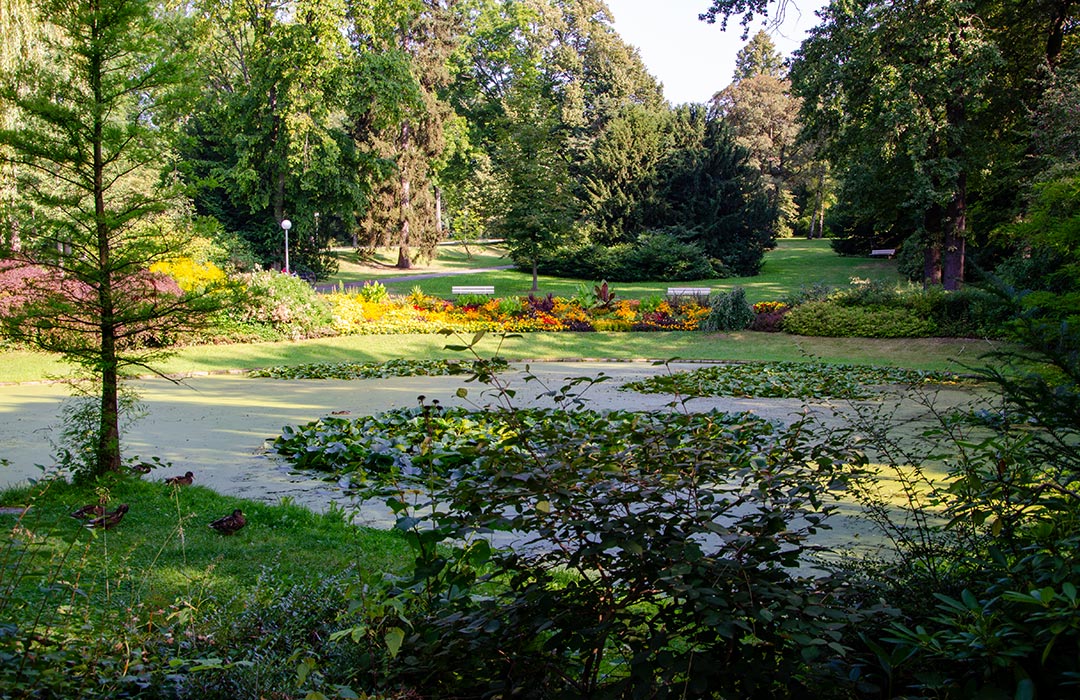
The Festspielpark during the Festival.
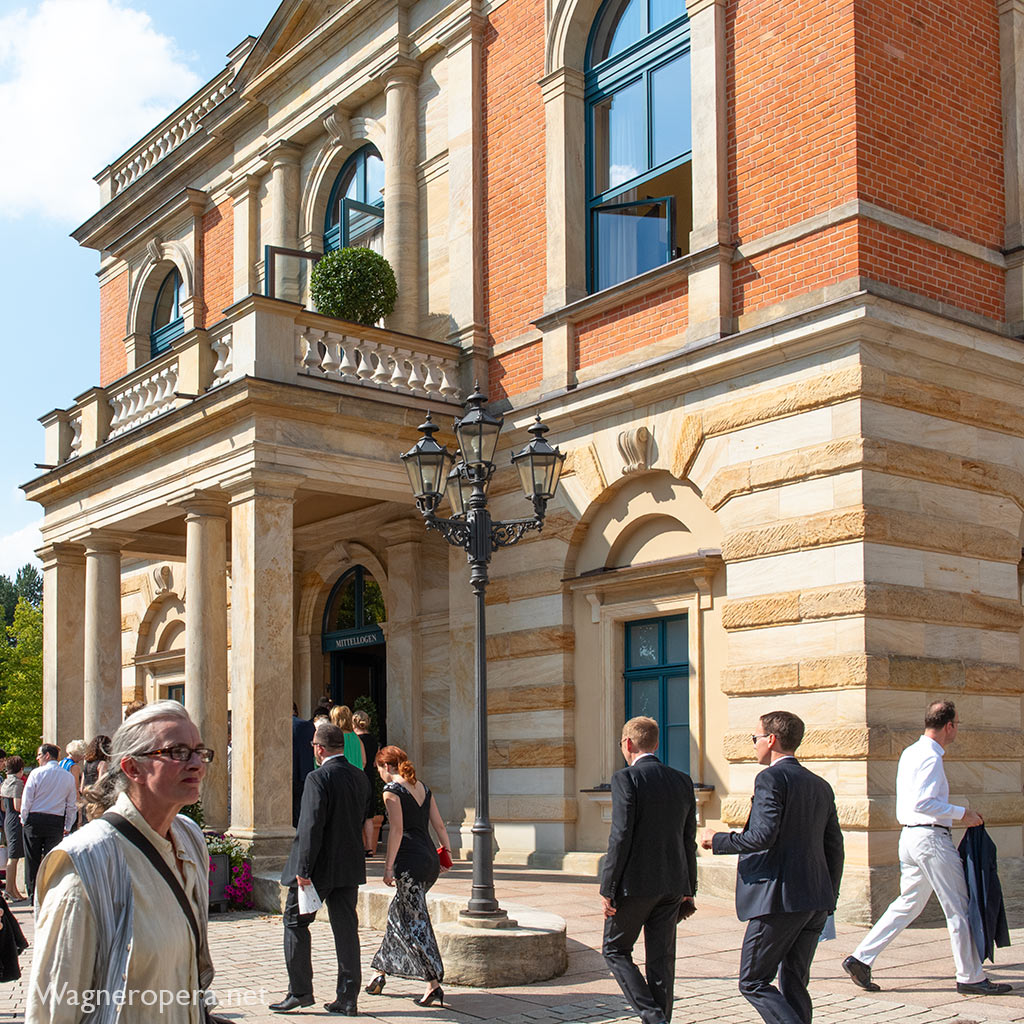
Bayreuth Festival Hall during the 2018 Festival.
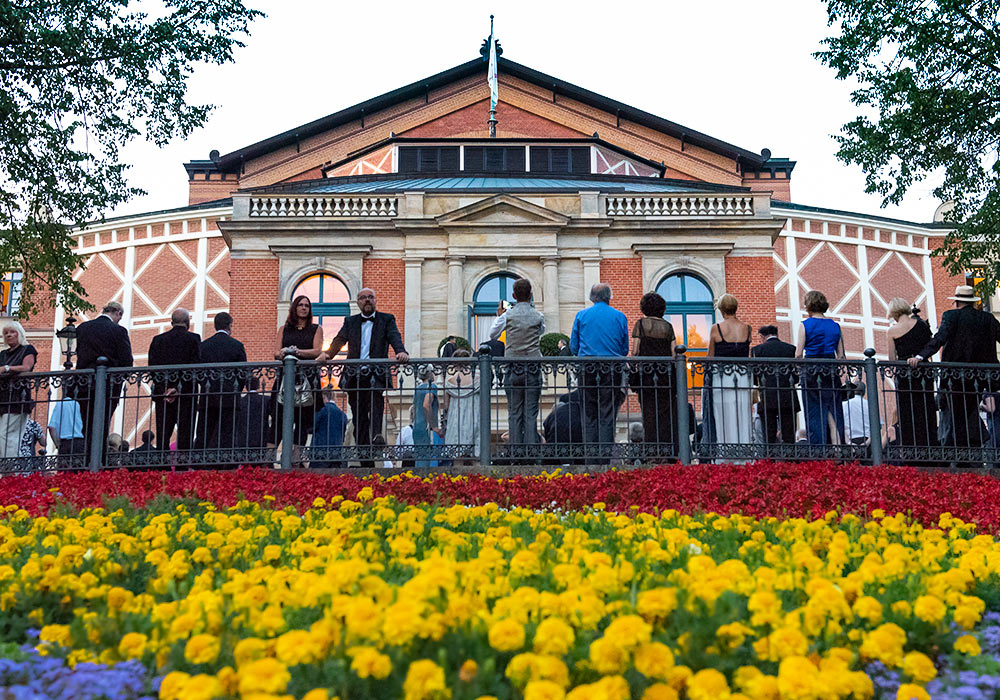
Festspielhaus Bayreuth 2018. Photo: Per-Erik Skramstad
